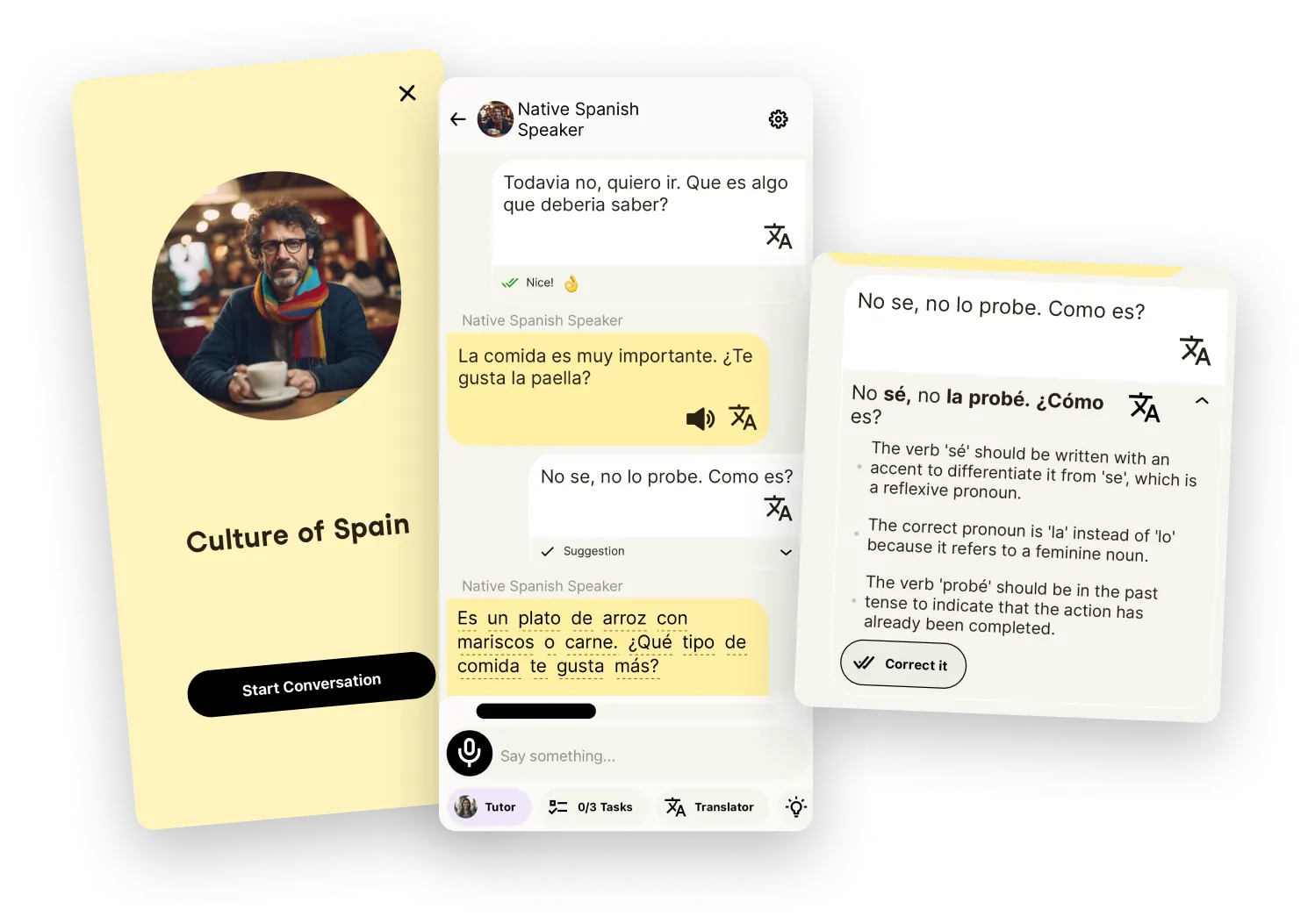Learning a language offers more than proficiency in grammar and vocabulary. It unlocks doors to new ways of thinking, behaving, and connecting - enriching your understanding of other cultures and your own place in the world.
In this guide, discover how language and culture are connected, real-life examples, practical intercultural learning strategies, and how Univerbal empowers you to become a true global citizen.
How language and culture connect: real-life examples
Language and culture develop side-by-side, each influencing and reflecting the other in unique ways. When you learn a new language, you also learn:
How people express values and emotions
What concepts are important in their society
Rituals, etiquette, and “unspoken rules”
Examples
🇯🇵 Japanese – The term “Mono no Aware” (物の哀れ): Embodying appreciation for the fleeting nature of life, present in poetry, hanami (cherry blossom viewing), and daily expressions about transience and reflection.

🇩🇰 Danish – “Hygge”: This untranslatable word means much more than “coziness” - it celebrates bonding, warmth, and well-being in Danish homes.
🇪🇸 Spanish – Phrases like “mi casa es tu casa” (“my house is your house”) show family importance and hospitality. Affectionate terms such as “corazón” (heart) and “cariño” (dear) reflect warmth in everyday life.
🇫🇷 French – A rich lexicon for bread and cheese (baguette, boule, camembert) reveals the deep significance of food, craftsmanship, and tradition. 😌

Benefits of cultural understanding through language learning
Learning a language always includes learning culture. The advantages:
Empathy: See the world through another’s eyes, recognize and respect differences.
Broader Perspective: Understand customs and history that shape outlooks on life and success.
Travel, Work, Life: Navigate international environments with greater ease and confidence.
Better Communication: Catch idioms, jokes, and subtle cues, avoiding misunderstandings.
Cross-cultural knowledge gives you tools for social intelligence and real global connection.
Learn more about the unique specifics of intercultural communication in this video.
Practical tips for cultural learning
Engage with native speakers
Practice with native speakers - online or in-person - gives you real insights you’ll never get from a textbook. Not able to travel? Univerbal provides a safe, supportive environment for virtual practice until you’re ready for real-life conversations.
Immerse yourself in media
Media is a window into what matters in a culture.
Movies & TV: Experience the humor, drama, and worldview (e.g., Bollywood’s color, K-Dramas’ plots, French cinema’s nuance).
Music & Literature: Learn slang, references, and social themes first-hand.
Take part in cultural events
Join festivals and traditions, onsite or virtually.
Examples: The Indian festival of Holi for color and renewal, Venice Carnival for artistry, Spanish cooking classes, and Mid-Autumn mooncake traditions in East Asia.
Events and celebrations are tactile, sensory experiences—take part and learn directly!

How Univerbal facilitates cultural learning
Univerbal doesn’t just teach words or grammar. It:
Embeds cultural nuance and context in lessons and dialogues.
Simulates real-life scenarios like etiquette, traditional celebrations, and local customs.
Offers AI-powered feedback during practice
Even if you don’t have native speakers at home, Univerbal bridges that gap - right from your phone.

Frequently Asked Questions
Q: Why is learning a language important for cultural understanding?
A: Language is a direct reflection of culture - learning it allows you to understand what matters, how people think, and how society functions.
Q: How can I learn about culture if I can’t travel?
A: Practice with native speakers online, use language exchange, participate in global events virtually, and immerse yourself in international films, media, and books.
Q: Does Univerbal help with cultural learning too?
A: Yes! It integrates context and real-life scenarios into dialogues, helping you understand both words and the meaning behind them.
Q: Will learning a language make me more empathetic?
A: Yes - multiple studies show that learning languages builds empathy, adaptability, and communication skills.
Conclusion
Every language you learn is a new lens on humanity. With Univerbal, you not only speak new words but open yourself to new experiences, ideas, and friendships. Start today and take your first step toward a richer, more connected world.
Ready? Sign up for Univerbal and begin your journey
Stay up to date with Univerbal 💌
Follow us on:
Instagram | TikTok | YouTube | Join our Discord channel
